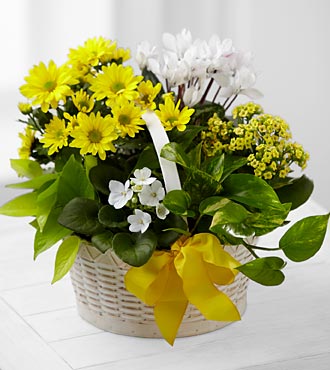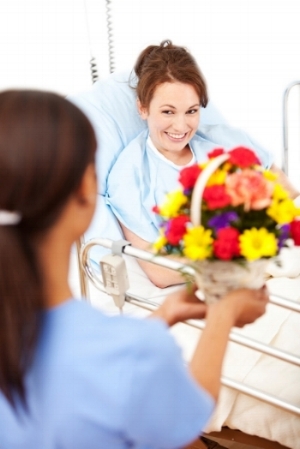The Many Benefits of Sending Flowers to a Hospital
Patient
Hospital gift shops are more than a source of revenue—floral gifts enable hospitals and loved ones to positively influence patient outcomes. Exposed to plants and flowers, patients have experienced faster recovery times, greater tolerance for pain, and reported higher rates of satisfaction with their hospital stay.
One randomized clinical trial found that flowers can be useful in healthcare settings: After abdominal surgery, patients assigned to rooms with flowering plants on average used less pain medication, had lower blood pressure and expressed higher satisfaction than patients in rooms without plants, according to a 2008 study of 90 patients in HortTechnology, one of the journals of the American Society for Horticultural Science.
CLICK HERE TO SEND FLOWERS
Contact with flowering plants directly benefits patients' health
Faster Recovery
Decades ago, a groundbreaking study by Roger S. Ulrich at the University of Delaware became the foundation for our understanding of how flowers and plants influence outcomes. The study found that "surgical patients assigned to rooms with windows looking out on a natural scene
ad shorter postoperative hospital stays" than those in rooms with windows that faced a brick wall.
Faster recovery time wasn't the only benefit; patients in garden view rooms took fewer analgesics and received fewer negative comments in nurses' notes, indicating that patients may have been more satisfied with their hospital experience than their 'brick wall' counterparts.
Since that study, several others have emerged supporting the idea that people exposed to plants or a natural environment recover more quickly from stress, showing improved psychological, emotional and cognitive health.

Stress Reduction
It's a simple truth that patients are often uplifted when receiving a gift of a floral arrangement or plant at their bedside. But the psychological effect on their healing continues beyond those first moments. Researchers in several studies assessed the impact of nature and plants on health, concluding that "people-plant interactions provide physiological stress reduction."
It's important to counter sources of stress "with positive distractions that have soothing effects to stimulate and encourage healing during hospitalizations. Viewing nature or having plants present has been considered an effective positive distraction that may provide ample involuntary attention, increase positive feelings, block or reduce worrisome thoughts, and promote restoration from stress."
Greater Satisfaction
Compared to those in rooms without plants, patients in another study expressed higher satisfaction and more positive feelings about their hospital rooms. According to the study, "introducing plants and flowers into a hospital room during the recovery period had a positive influence linking directly to health outcomes of surgical patients. Patients exposed to plants had significantly less need for analgesics, enhanced physiological responses, lower ratings of pain, anxiety, and fatigue."
